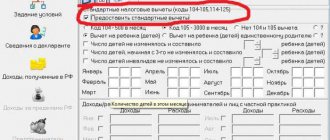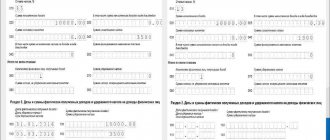Who should pay?
The employer is responsible for deductions of personal income tax to the state from the income of its employees. In this situation, the fact of what form of ownership the enterprise has and what its status does not matter.
In the situation of private practice, the amount of income is determined as the value of profit from conducting independent activities.
Articles 226 and 227 of the Tax Code of the Russian Federation legally establish the norms for the calculation and withholding of the tax under study.
At the end of the tax period calculated in a year, the organization must submit to tax reporting in the form of 2-NDFL certificates, which are carried out in the context of each employee of the company. Within these certificates, it is necessary to indicate the amounts of income received by employees for the year by month, as well as the amounts of tax calculated and paid to the budget. Certificates on this form must be submitted no later than April 1 of the reporting year.
The employer has not paid the withheld personal income tax: what to do and where to go?
Organizations and individual entrepreneurs become tax agents from the moment an employment contract is signed with a citizen. The agent is obliged to calculate income tax, withhold it from salary and pay it to the budget (Article 226 of the Tax Code of the Russian Federation). Personal income tax is transferred monthly. If income tax has been withheld, the employer is responsible for paying it, not the employee.
You can find out how conscientiously a tax agent pays personal income tax in the following ways:
- request a 2-NDFL certificate from the accounting department, which reflects the withheld income tax (even if the certificate is falsified, it will be required when filing a complaint against the employer);
- register on the official portal of the Federal Tax Service, use your personal account;
- submit a request through the State Services portal (the user will receive a statement with the amounts paid to the budget by his employers).
If the taxpayer remains inactive, the fact of non-payment of income tax will sooner or later be revealed, for example, when filing a declaration.
When does responsibility come?
Situations where the taxpayer (employer) does not pay the personal income tax amount on time can be identified quite easily by the tax authorities. An important point here is the calculation of the period during which the employer can be held liable.
The size of this period may depend on the fact how the income was received by the employees. Among the possible methods we will indicate: (click to expand)
- money received in cash;
- in its natural form;
- material benefit;
- cashless transfer.
It should not be forgotten that in addition to the fine, you will also have to pay a penalty according to a special calculation. The fine can be significant and amounts to 20% of the unpaid amounts, and in some situations it can reach up to 40% depending on the period of missed payments.
When does liability arise for non-payment of tax?
An employer who, acting as a tax agent, is obliged to withhold personal income tax on income paid to an employee may also be found guilty of non-payment of tax. At the same time, he can commit this evasion in different ways, on which the number of sanctions applicable in each specific situation depends.
There are situations when the tax agent failed to pay the tax, but the tax authority did not detect this offense. In this situation, the question may arise: within what time do controllers have the opportunity to bring the violator to justice?
Some unscrupulous payers try to save on taxes to minimize their costs. Most often this is connected specifically with salary taxes, since this is the main large-scale expense item for most organizations. In order to hide the employee’s real income from controllers, the employer can resort to the payment of wages in envelopes, thereby reducing the tax base for calculating personal income tax and insurance contributions.
An employee who receives a salary in an envelope may also be liable for personal income tax (if he is aware that the employer does not withhold or pay tax deductions from his salary).
When receiving income from which personal income tax has not been withheld, the employee must independently fill out a declaration, submit it to the tax authority (by April 30 of the following year) and pay the tax. If he does not do this, the tax authority may collect personal income tax and penalties from him. For failure to submit a return, an employee may be subject to a fine of 5% of the unpaid tax amount for each full or partial month from the day on which it was due. Failure to pay personal income tax on a large scale may also result in criminal penalties.
Having committed an offense related to non-payment of personal income tax, the payer, in addition to the unpaid amount and fine, must transfer the amount of the penalty to the budget of the Russian Federation. However, its calculation has some peculiarities. In this case, it is necessary to determine:
- There are circumstances when a penalty cannot be assessed.
- Can the Federal Tax Service independently calculate the amount of penalties.
It is very important, when paying the penalty accrued for non-payment of tax, not to make a mistake in the details, because the BCC, depending on the category of the payer and the type of income received, changes.
When does a company face a personal income tax fine?
There are various possible bases for calculating fines for non-payment of personal income tax. The table below presents the possible options clearly.
There are 4 grounds for charging a fine, which are listed in the table below.
| Base | Link to article of the Tax Code of the Russian Federation | Characteristic |
| Didn't hold (not completely) | Article 123 of the Tax Code of the Russian Federation | Amounts not withheld or incompletely withheld |
| Not listed | Article 123 of the Tax Code of the Russian Federation | Amounts withheld but not transferred |
| Transferred untimely | Article 123 of the Tax Code of the Russian Federation | Amounts withheld but not transferred on time |
| Not fully listed | Article 123 of the Tax Code of the Russian Federation | Amounts withheld but not transferred |
How to avoid fines for late payment of personal income tax
So, you may be fined 20% of the amount of tax you pay within the established time frame (clause 1 of Article 123 of the Tax Code of the Russian Federation):
IMPORTANT! The general deadline for personal income tax payment is no later than the day following the day of payment of income. A special case is personal income tax on vacation and sick leave, which can be transferred on the last day of the month.
You can avoid a fine provided that you (clause 2 of Article 123 of the Tax Code of the Russian Federation):
Since a fine is due for two different actions: the tax was not withheld or the tax was not paid, the measures that need to be taken to avoid a fine will be somewhat different. We present them for each situation.
How to determine the date correctly?
To ensure that fines are not assessed against the taxpayer, it is enough to follow one simple rule: clearly know and comply with the payment deadlines for this tax.
The table below shows the deadlines for paying tax amounts, which depend on the type of income received.
| Income | Receipt time | Hold date |
| Payment for work performed | The very last day of the month, or the very first day of the next month | On the day of transfer of funds |
| Cash as income | The day the payment was made | Date on which payment was made |
| Vacation payment | Last day of payment | On the last date of the payment month |
| Sickness benefits | Last day of payment | On the last date of the payment month |
It should be noted that if the taxpayer fails to fulfill his obligations, the amount of the fine will be withheld, but the amount of the arrears itself cannot be withdrawn and collected.
Deadlines for transferring personal income tax to the budget
When transferring personal income tax to the budget, the employer should take into account the deadlines specified in the current tax legislation. The deadlines for transferring personal income tax depend on the form in which earnings are paid: in cash or non-cash form to bank cards.
The day of receipt of salary is considered to be the last day of the month for which it was accrued. Therefore, personal income tax is not withheld or transferred from the advance payment. It is paid monthly upon final payment for the month. This position is given in the explanatory letters of the Ministry of Finance and the Federal Tax Service: Letter of the Ministry of Finance of 2013 No. 03-04-05/25494; Federal Tax Service of 2014 No. BS-4-11/ [email protected]
Based on the above, personal income tax, which is paid at the time of payment of the advance, is also considered to be paid ahead of schedule, since the employee has not yet received income for the month at that moment.
When paying wages to a bank card, personal income tax is paid on the day of payment according to paragraphs. 4, 6 tbsp. 226 Tax Code. That is, the payment order for the payment of the final settlement is submitted to the bank simultaneously with the payment order for the transfer of tax.
If an employer withdraws money from his bank account to pay wages, then he submits a payment order to transfer personal income tax to the budget on the day of cash withdrawal by check on the basis of clause 6 of Art. 226 Tax Code.
Even if on the specified day the employee did not receive a salary in cash because he was absent from the workplace, the employer’s duties as a tax agent when transferring personal income tax on that day are considered to be fulfilled in a timely manner. In this case, the salary is deposited, and the employer has no obligation to return personal income tax from the budget.
Thus, if a salary was received by an employee late, this does not in any way affect the employer’s settlements with the budget.
Court decisions also prove that depositing wages does not relieve the employer from the need to pay personal income tax on time. If he does not do this, he faces a fine of 20% of the amount to be withheld and a late fee.
If the organization had cash revenue at the cash desk for issuing salaries, then it is not obliged to withdraw money from the account for this (according to clause 2 of the Central Bank Directive No. 3073-U of 2013). In this case, personal income tax is paid no later than the next day after the payment of wages to employees in cash according to paragraph. 2 clause 6 art. 226 of the Tax Code and Letter of the Ministry of Finance of 2014 No. 03-04-06/33737. But in this case, it is also possible to transfer the tax on the same day; there is no need to wait for the next one: this will not be considered early payment. After all, at the time of withholding personal income tax, the income had already been received by the employee.
Deadlines depending on payment methods
Compliance with deadlines for payment of withholding amounts also depends on the type and method of payment. This information is reflected in the table below.
| In case of non-cash transfer | Payment date = transfer date |
| In the situation of receiving cash payments | No later than one day after the day of receipt of funds |
| Paying in cash, but at the bank's cash desk | On the day of receipt (moment of receipt) |
If we are talking about individual entrepreneurs or individuals, then the tax amount can be paid in accordance with the end of the reporting period, that is, no later than the 15th day of the post-reporting month.
The possibility of non-assessment of fines and sanctions appears only in one case: timely transfer of the tax amount to the budget. Therefore, the need to track deadlines and payments is very important for the employer.
Changes in the payment procedure in 2022
The year 2022 opened with the introduction of a new procedure for filling out and submitting a declaration in form 6-NDFL. This document provides tax authorities with the opportunity to control the dates of payment of personal income tax amounts and their compliance with regulatory deadlines. And in case of violation of such deadlines, the Federal Tax Service retains the right to apply sanctions in the form of fines and penalties.
The amount of the established fine for late payment of amounts in 2022 also remains at 20% of the unpaid amounts, and penalties should also be added here.
The number of days that were missed from the established deadline does not matter for calculating the amount of penalties.
There are no circumstances under which sanctions can be relaxed. If the receipt for payment of the fine has not arrived, this does not mean that it will be absent.
How to fill out a report when personal income tax is not transferred to the budget
Sometimes situations arise when employees’ wages were paid, taxes were withheld, but they were not transferred to the budget on time. Such nuances may appear in the following cases:
- The company has an unstable financial position;
- accountant's mistake;
- technical failures and other reasons.
How to fill out 6 personal income taxes if tax is withheld but not paid? The report shows the amount of accrued income for all individuals and the calculation of tax amounts. It does not record the fact of personal income tax payment. Even line 120 does not imply the actual date of transfer of funds, but the deadline when this needs to be done. Consequently, 6 personal income tax is filled out in the usual manner, as if the tax was transferred on time.
Important! The tax inspectorate may consider displaying the actual date of personal income tax payment in the report as providing false information and fine the tax agent. The fine is 500 rubles.
Despite the fact that the report will be completed in the same form, this does not relieve the employer of responsibility for violating tax laws. For each day of delay, a penalty will be imposed on the tax agent (Article 75 of the Tax Code of the Russian Federation). Penalties will apply from the next day after the date indicated in line 120.
In addition, inspectors will check the deadline specified in line 120 and the actual date of transfer and impose a fine on the taxpayer for violation of the law in the amount of 20% of the amount of unpaid tax.
Example No. 1.
If you take line 120 of form 6-NDFL, then the employer indicates the date no later than which the tax must be transferred. Term 140 indicates the required amount to be received into the budget. From this amount, the tax authorities subtract the returned personal income tax from line 090.
When a company transfers personal income tax amounts later than the date indicated in line 120, a notice of delay appears in the tax authorities within the framework of the budget settlement card. The desk audit inspector enters information about taxes paid based on the company's invoices.
The appendix to the article provides an example of entries from Form 6-NDFL.
Filing a complaint against an employer for non-payment of personal income tax
If a worker is convinced that a tax agent withholds but does not pay taxes for him, he must contact the following authorities:
- local department of the State Labor Inspectorate;
- prosecutor's office;
- Federal Tax Service branch at the location of the organization.
Let's look at how to file complaints with the above authorities. The procedure for submitting appeals to regulatory and supervisory structures is regulated by Federal Law No. 59 of May 2, 2006.
Complaint to the State Tax Inspectorate
The State Labor Inspectorate accepts statements/complaints about violations of labor laws written in free form. You can fill out a standard form when visiting a regional GIT office in person. The Inspectorate also accepts requests via the website. The application must be accompanied by documents that prove the fact of withholding and non-transfer of tax.
DOWNLOAD Complaint against the employer to the labor inspectorate
The State Tax Inspectorate can hold the employer administratively liable, initiate an inspection, transfer materials to the prosecutor's office, and remove those responsible from work.
Complaint to the Federal Tax Service
The complaint is sent to the inspectorate at the location of the employer's office. The exact form of the document is not established by law, so you can write an appeal in free form. Sometimes the form is available at the Federal Tax Service office among sample applications. The complaint must contain the following information:
- name and address of the Federal Tax Service division;
- employee details (full name, address, telephone);
- name of the employing organization, position of the applicant;
- a brief description of the violation, requirements and legal basis;
- list of applications, date.
The tax authorities will consider the application anonymously if it includes a request to maintain the confidentiality of the applicant’s identity.
The document is prepared in two copies. The first is submitted to the Federal Tax Service, the second copy with the registration mark remains with the employee.
Appeals are considered within 30 days from the date of registration. The Tax Inspectorate accepts complaints submitted in person, sent by Russian Post, as well as through your personal account on the Federal Tax Service portal.
Application to the prosecutor's office
A complaint to the prosecutor's office against an employer is drawn up in any form. A sample application can be obtained from the duty prosecutor. The application is submitted free of charge. The document must indicate the following information:
- name of the prosecutor's office;
- general and contact information of the applicant;
- information about labor relations (position, period of work, employment contract number);
- grounds for appeal (violations, references to laws and evidence);
- request for an inspection.
Before submitting an application, you must collect a package of supporting documents. If the application is accepted, the prosecutor's office will organize an inspection or transfer the appeal to the State Tax Inspectorate.
DOWNLOAD Application/complaint to the prosecutor's office against the employer
Procedure for calculating fines in 2022
In 2022, the amount of interest payments on penalties remained unchanged, but the procedure for calculating them changed slightly.
The main features include: (click to expand)
- if you take vacation payments, then the tax must be calculated at the same moment when the benefit itself is calculated;
- the deadline for submitting a 2-NDFL certificate for full payment of tax amounts remained unchanged - until 04/03/2022, and in a situation where the tax was not fully transferred, these deadlines were reduced until March;
- If previously the tax amount had to be paid on the same day when the salary was paid, now this period has increased by one knock;
- If we take into account social guarantees, it should be noted that they are now listed at the place of performance of the labor function.
Amounts and amounts of fines in 2022
The punishment itself for situations of non-payment of tax amounts remains severe.
The justification for this punishment is presented in Art. 123 Tax Code of the Russian Federation. It specifies the cases for which such punishment is possible. Situations highlighted among them are:
- complete lack of budget funds for payments;
- payment of only part of the tax;
- untimely payment of amounts.
The fine will be 20% of the unpaid amounts.
Situations are possible when the employer not only fails to pay the amounts, but also fails to submit the tax return itself. In such a situation, it is possible to schedule an on-site tax audit.
Once violations are identified, the following sanctions will be applied:
- calculation of penalties;
- charging a fine;
- in more complex situations involving large sums, criminal liability may be applied when the case is referred to the prosecutor's office. In such a situation, the fine may reach 500 rubles, or the relevant persons may be punished up to imprisonment.
Sanctions for agents, individuals and payers
Tax payments of 13% must be made by the following groups of persons:
- employers;
- specialists with private practice;
- foreign companies.
Important! If they fail to comply with established obligations, the fine will be 20% of the amount owed.
As for individuals, personal income tax amounts are applied to them in a situation where they receive income from the sale of property. The fine is also 20%.
Important! The fine can be increased to 40% for particularly large and malicious violations.
Sanction for tax agents
Organizations and businessmen who have entered into an employment contract act as tax agents. They are required to calculate, withhold and pay income tax to the treasury. This requirement is established by paragraph 1 of Art. 24 Tax Code of the Russian Federation. Similar functions are performed by:
- persons engaged in private practice (lawyers, notaries, etc.);
- branches of foreign companies located on the territory of the Russian Federation.
Tax agents are required to regularly deduct income tax in the amount of 13% of the taxable amounts (with an accrual total in reporting). But in 2022 there are other rates: 9, 15, 30 and 35%. They operate depending on:
- income categories;
- type of payer.
Also about personal income tax, read our article: “Personal income tax tax rates” (relevant in 2021).
An important task for an enterprise is to identify and repay debt in a timely manner. And in the absence of payment or incomplete transfer of personal income tax, a fine is imposed in the amount of 20% of the amount that was required to be paid to the budget. An exception is provided for the issuance of income in kind, from which it is impossible to take tax.
The tax authorities decide whether to impose a punishment or not, taking into account the provisions of Art. 109 of the Tax Code of the Russian Federation.
Example 1
failed to withhold income tax from customer service manager N.V. Frolova. She is a resident of the Russian Federation. The personal income tax amount is 3,750 rubles. What could be the consequences?
The company's management will only receive a fine for non-payment of personal income tax by the tax agent in the amount of 750 rubles. The agent cannot be responsible for the rest. Therefore, they will not collect the arrears, and they will not accrue penalties either. Base:
- clause 9 art. 226 Tax Code of the Russian Federation;
- Federal Tax Service letter No. ED-4-2/13600.
Example 2
Leader LLC collected income tax in the amount of 35,000 rubles from employees, but did not pay it to the budget on time. What responsibilities are provided by law?
The company is obliged to pay a fine of 7,000 rubles, arrears and penalties on the basis of Art. 108 Tax Code of the Russian Federation.
Also read the article: “Calculated and withheld personal income tax: what is the difference?”
Individual entrepreneurs regularly make advance payments for personal income tax. And at the end of the reporting year, they pay tax. Such requirements are established by paragraph of Art. 227 Tax Code.
Important
The amount and procedure for imposing a fine for non-payment of personal income tax by a tax agent in 2022 remains the same.
Also read the article: “Personal Income Tax Payment Deadline.”
How to reduce sanctions or avoid them altogether?
There may be situations where even in the event of a violation, liability does not arise.
Such cases include:
- early payment of the tax amount;
- the tax was transferred even before the salary was paid;
- funds to the budget were transferred to the head office of the tax office, and not to the territorial department.
In such situations, the taxpayer is able to defend his right and avoid liability.
Possible options for reducing fines are as follows:
- proven program failures and errors;
- change of management in the company;
- the employer himself admitted guilt;
- there are no debts on other tax obligations;
- The company operates in the social sphere.
If the situation is characterized by at least one of the listed signs, then the fine can be reduced by almost half. In addition, you can contact the judicial authorities.
The table below presents options on how to avoid a fine for failure to pay personal income tax late.
| The company withheld, but transferred the tax late | |
| Previously | Now |
| The company lists the arrears, penalties and submits an update on 6-NDFL | The company transfers arrears and penalties before submitting the initial 6-NDFL |
| The company receives an exemption from the fine (subclause 1, clause 4, article 81 of the Tax Code of the Russian Federation) | Exemption from fine |
| In a dispute with the tax company, the company refers to the decision of the Supreme Arbitration Court of March 18, 2014 No. 18290/13 | In case of tax disputes, you can refer to the resolution of the Constitutional Court dated 02/06/2022 No. 6-P |
The Constitutional Court obliged everyone to apply Resolution 6-P.
Statute of limitations and identification features
The tax authorities' demands to pay fines, arrears and penalties have a time limit of 3 years (clause 1 of Article 113 of the Tax Code of the Russian Federation). After this period, it is difficult to recover the amount.
The unpaid amount is usually identified as a result of a tax audit, on the basis of which a report on the discovery of the debt is drawn up.
Remember: timely identification of financial obligations to the budget and compliance with legal regulations will allow you to avoid fines for non-payment of personal income tax. This will prevent additional losses and litigation.
Cancellation of fines for late payment of personal income tax: recent changes
On December 25, 2022, changes to the Tax Code of the Russian Federation were approved, according to which it is possible to cancel the fine for late payment of personal income tax for tax agents (bill No. 527676-7). To do this, a number of conditions must be met.
Such conditions include:
- timely provision of 6-NDFL calculations;
- 6-NDFL is completed correctly and without errors, it does not contain data on underestimated amounts of personal income tax;
- Personal income tax and penalties were paid before the tax authorities learned about the delay and scheduled an on-site audit.
Important! All these conditions must be met simultaneously. In such a situation, a fine can be avoided
Answers to frequently asked questions
Question No. 1. The organization calculated and withheld personal income tax from wages, but transferred it to the budget with a delay of several days. Can the tax office impose a 20% fine for late payment of taxes, or must it first issue a demand for payment of arrears?
Answer: Issuing a requirement is not mandatory. The employer may be held liable for late payment of a fine under Art. 123 of the Tax Code of the Russian Federation for violating the deadlines for transferring taxes to the budget system.
Question No. 2. What income is not included in the tax base for personal income tax?
Answer: Among them are:
- state capacity;
- scholarships;
- pension payments;
- childbirth benefits;
- inheritance or gift;
- interest income from deposits;
- prize items not exceeding 4 tr;
- certificate for maternal capital.
The right to deduction is retained if the employer has not paid personal income tax
Most workers face the problem of non-payment of income taxes by their employer after filing their return. 3-NDFL is submitted to apply a property deduction (Article 220 of the Tax Code). A citizen has the right to use a deduction and receive a tax refund even if the employer did not transfer it to the budget. This rule applies if tax was withheld from salary.
The Letter of the Federal Tax Service No. ED-3-3/ dated June 15, 2012 states that the possibility of applying the deduction should not depend on how the tax agent fulfills his duties. Thus, if the employer has not paid the tax, the tax inspector does not have the right to refuse to provide a deduction.
Attention! A citizen is released from liability for non-payment of tax from the moment personal income tax is withheld by the employer. The employee has the right to file a complaint against the employer.






